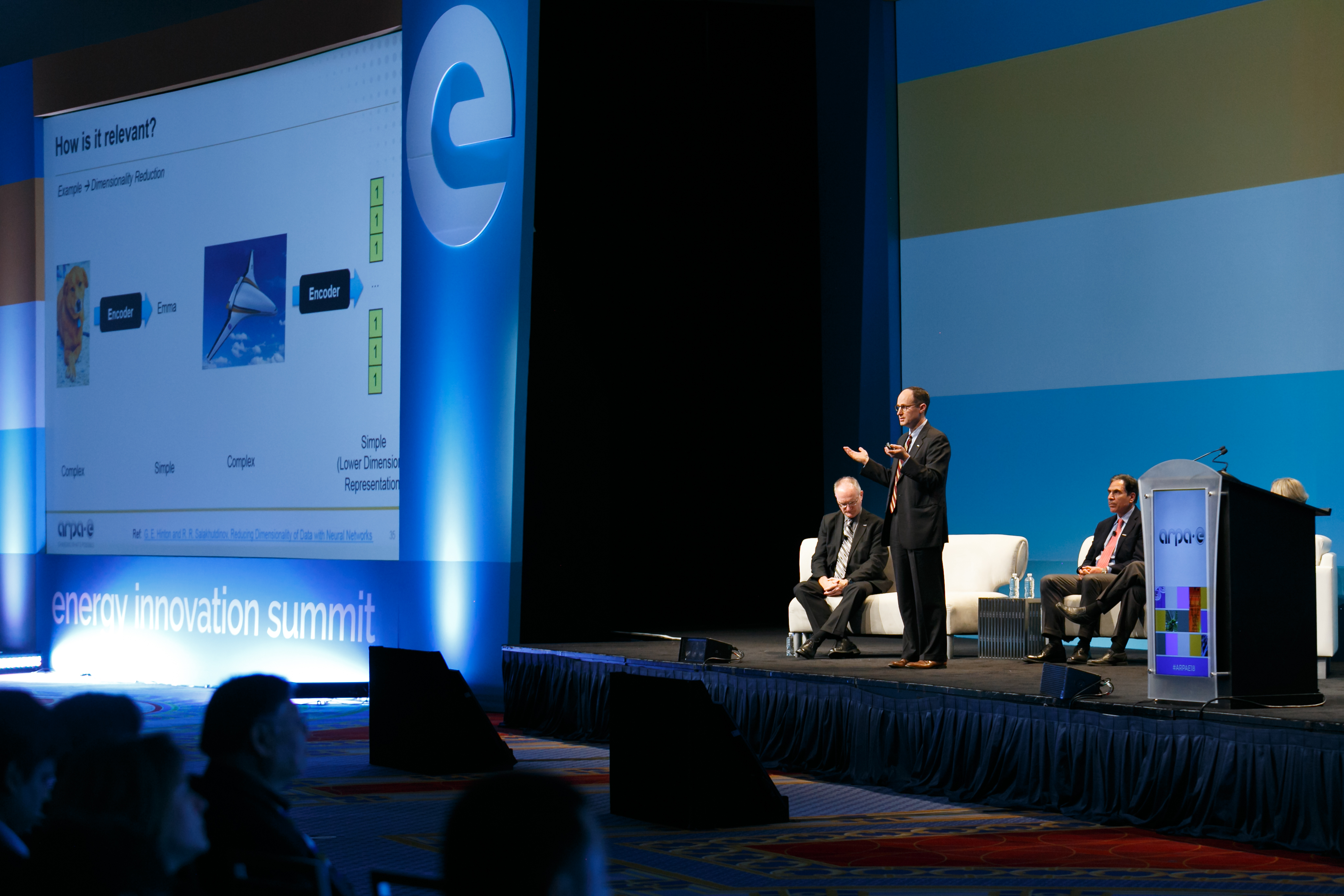
Exploring Machine Learning-Enhanced Energy-Product Development with Dr. David Tew
Dr. David Tew joined ARPA-E as a Program Director in 2016 after nearly 20 years at United Technologies Corporation. His research focus at ARPA-E includes combined heat and power systems, industrial processes, and transportation energy efficiency. Dr. Tew delivered a Fast Pitch on Machine Learning-Enhanced Energy-Product Development at the 2018 ARPA-E Energy Innovation Summit. Now, he is leading a workshop on the topic to engage the broader research community.
In one sentence, can you tell us what this workshop is about?
We want to bring together machine learning (ML), artificial intelligence (AI), and design engineering experts to brainstorm next generation software tools that could transform complex engineering design and energy technologies.
You’re leading an upcoming workshop that explores artificial intelligence and machine learning for energy applications. Why is ARPA-E potentially interested in this? What’s the big deal?
At a high level, ARPA-E is charged with ensuring a prosperous economic future for the U.S. by catalyzing transformational, high-impact energy technologies. Going forward, growing the economy through energy innovation becomes more difficult due to the complexity and time intensiveness of optimizing technologies and the vastness of the design whitespace. With that in mind, we see an opportunity to provide tools that boost the ability of U.S. energy engineers to explore more design options, while spending less time and fewer resources by increasing existing productivity.
Given broader Department of Energy efforts to significantly enhance computational capabilities such as supercomputing, we see a complementary pathway where automating design processes and amplifying human intelligence could allow the U.S. to solve problems faster, create stronger products, and maintain our edge in both supercomputing and AI capabilities.
We plan to discuss three main strategies with workshop attendees: dimensionality reduction, inverse design, and information synthesis (we are also hoping to learn about any other strategies that the community believes could be impactful). Let’s define these strategies:
1. Dimensionality reduction – algorithm determines the parameters from a high-dimensional space that most influence performance and/or cost, to simplify optimization down to a more manageable set or representation
2. Inverse design – designer inputs performance targets and constraints, and algorithm outputs an optimal design recommendation
3. Information Synthesis – algorithm sifts through the vast amount of literature and information available to inform design decisions
We are looking to the community to help us envision specific ways AI and ML could be applied to one or more of these strategies, with specific application to energy systems.
What are you hoping to learn from workshop attendees?
At the most basic level, we’re looking for attendees to help build out a robust list of problem statements as well as a better understanding of promising AI/ML methodologies, and from there pinpoint opportunities and challenges in leveraging these methodologies to solve the problem statements. We hope to gain a better understanding of how broadly these solutions could apply within existing ARPA-E energy applications—for example, to what extent could a tool that aids engine design be used more broadly, such as for design of gas turbines or compressors? We also need to better understand how data availability and accessibility may or may not limit what can be accomplished, and any other barriers the workshop community foresees.
Lastly, I am eager to hear what the community would consider a success and more specifically what is required for users to have sufficient confidence in the AI/ML-based design tools. For example, to what extent do outputs need to be “explainable” (how much of the interworking of a program does the designer need to understand to have confidence in its recommendations), as well as how important experimental validation might be to validation of the tools.
To learn more about Dr. Tew, why he came to ARPA-E, and other areas he is interested in, be sure to check out this blog.
Stay in touch with ARPA-E by subscribing to our newsletter. To learn more about ARPA E’s exploration of this technical area, check out the workshop page.
